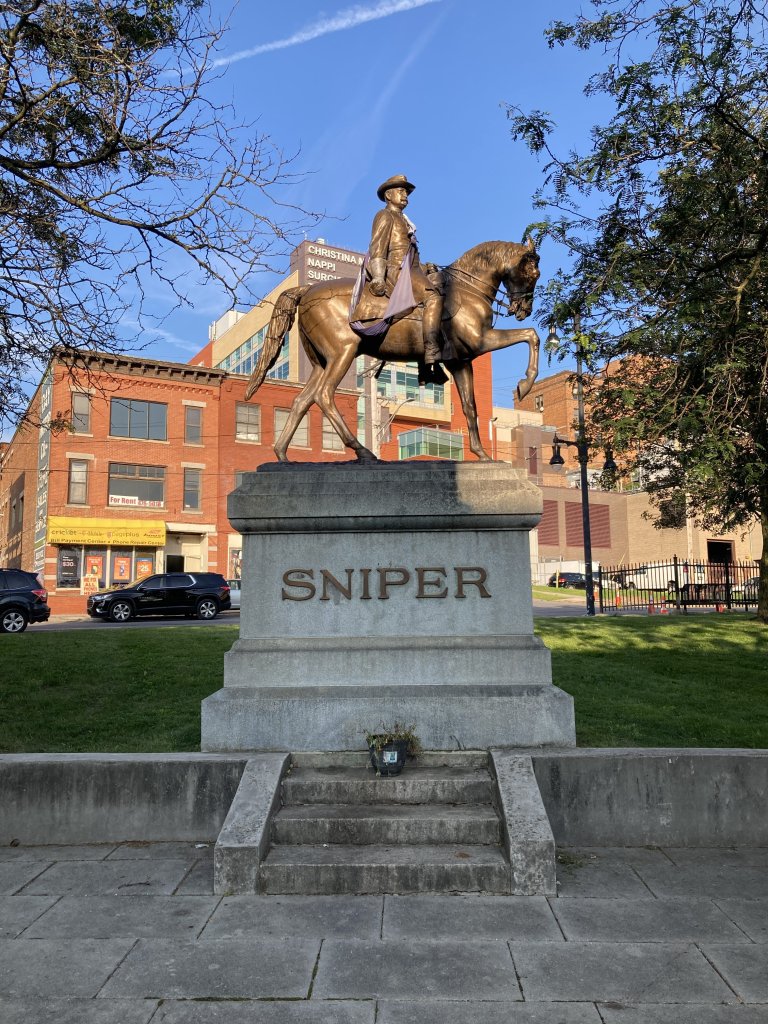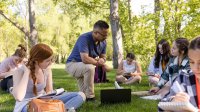Going Outdoors to Inspire Student Writing
Exposure to natural environments gives learners a change of place and pace that can help them strengthen their literacy skills.
Your content has been saved!
Go to My Saved Content.One of the most imposing and overwhelming things a student can encounter during their school day is a blank page. Questions like “Where do I start?” and “What do I write about?” can drastically reduce student motivation and engagement, and sometimes it can seem like nothing, not even puppet shows or backflips, makes a difference in the struggle to keep students interested in writing. While encouraging reluctant writers can be challenging, writing is a foundational skill for developing literacy and one that is essential in almost every subject area to some degree.
Addressing the challenges associated with getting reluctant writers inspired and excited about writing has led to an amazing collaboration between the National Writing Project and the National Park Service that has now become an annual event called Write Out.
A two-week celebration of writing inspired by public spaces and the great outdoors, Write Out runs from October 8 to 22 and is currently in its sixth year. Each year, the organizers put together a multitude of resources and activities around a central theme that educators from anywhere can draw on as a way of encouraging their students to write.
During a recent webinar, the organizer shared an important point: There is no wrong way to participate in Write Out. Whether you have five minutes or five days, you and your students can still participate. Here are three ideas that you can draw from to get started.
1. Go Outside and Write!
The overarching goal of this event is the idea that writing outdoors is beneficial to the writer, as well as the work they produce. Research has shown conclusively that spending time outdoors, even a small amount of it, is associated with a wide variety of benefits and can help teachers who are looking for ways to address the social and emotional needs of their students.
A great way to participate is to commit to taking your students outside, maybe even to one of the 425 units of the National Park System. However, it doesn’t have to be a national park, as that might be tricky to get to. You could take your class to a city park or even a patch of green space within walking distance of your classroom. Parks come in all shapes and sizes, so find one near you.
If you’re looking for ideas to inspire your students once they’re outside, the organizers have taken care of that aspect of the planning for you. A series of sparks—provocative prompts or inspirational resources—will be shared throughout the event to inspire you and your students. Some of these will come in the form of videos produced in collaboration with different National Park Service sites throughout the country. It’s not just a great way to get kids writing; it’s also a great way to introduce them to places that they may not be familiar with already.
2. Write Out Applies Across the Curriculum
While the connections between Write Out and English language arts are very apparent, Write Out is an event that welcomes participation for all teachers, regardless of their subject or focus.
Many great ideas were shared during the webinar on how to bring writing into all sorts of curricular areas. Science teachers can help students to develop the observation and inquiry skills that are so crucial to their subject through protocols like sketch-sensory-scribe, where students in an outdoor environment first sketch what they see, much as naturalists would in a science notebook; then they jot down what their other senses can detect before writing descriptive texts that integrate science concepts or academic vocabulary.
Math teachers might send their students out into natural environments looking for patterns that can be described with numerals as well as words, or they may have the students put together word problems based on videos shared by national parks. Gateway Arch National Park created one that is a great example of how math and STEM can connect to writing about parks.

History and civics teachers might encourage their students to go out into the community and search for the stories behind lost local history or mysterious plaques and landmarks placed long ago without sufficient context to understand their significance. For example, a statue in Syracuse, New York, sits in a park with no context or information aside from the word “Sniper” on the base. Who was this, and what did he do to deserve a statue?
3. This Event Isn’t Just For Students
Many teachers are just as passionate about writing as they hope their students could be, but sometimes they lack the ability to connect with like-minded writers. To encourage participation by adult learners and writers, a series of evening events has been planned throughout the two weeks that offer opportunities for writing outside of the academic day.
One of the events, a new addition to the Write Out schedule dubbed “Park and Write,” is an opportunity for adults to gather and write together in a safe and supportive space. If you don’t have a writing group of your own, this might be an opportunity to network with like-minded writers from across the country.
You can learn more about the event and how to access the resources by going to the official website, joining the educators group, signing up for the newsletter, or following the official hashtag #WriteOut.
